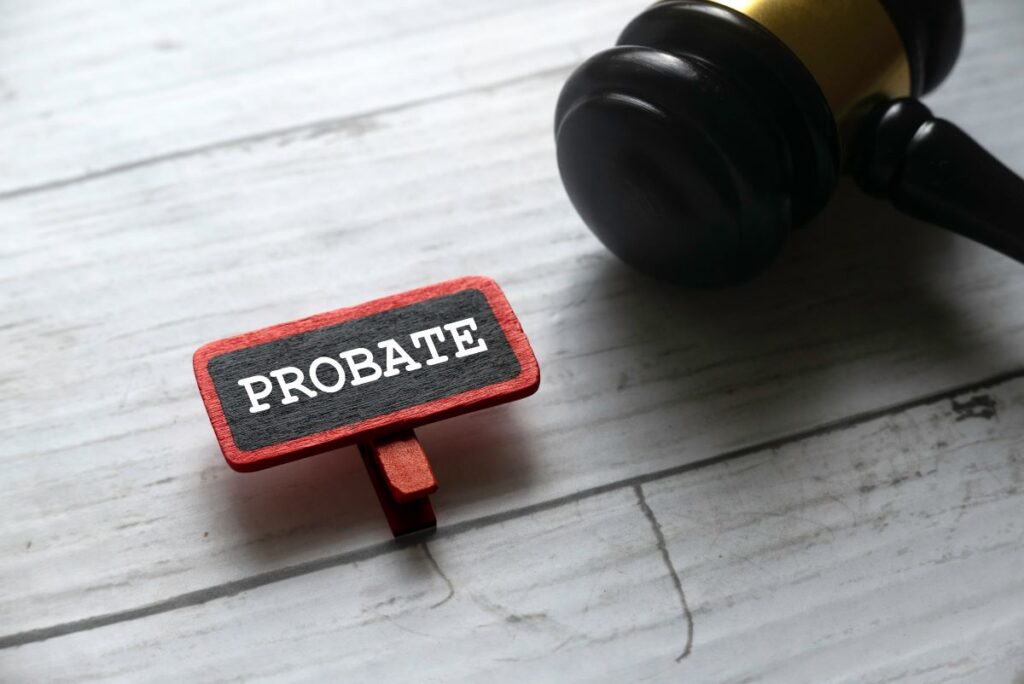Many people believe that if they die while married, their spouse and children will automatically inherit everything. But how many explore the question “What will happen when I die?” This assumption is loosely based on the rules that apply when someone dies without a will, a situation known as “dying intestate.” While specifics vary by state, the general rule is that your spouse inherits a portion of your estate, and the remainder may go to your children or, in some cases, to your parents. However, the exact distribution depends on state law and which family members survive you.
At first glance, this might seem fair—your spouse gets a share, and so do your children. But relying on state laws to distribute your assets can lead to unintended and sometimes problematic results, especially given today’s diverse family structures. Here are a few ways these laws may fall short in answering the question, “When I die, will my spouse and kids inherit everything?”

Modern Families Don’t Fit Traditional Assumptions
Most state intestacy laws assume a traditional family structure—a married couple and their biological children. However, this outdated view does not reflect the reality for many families today. What will happen when I die and I do not fit into these traditional assumptions?
A study identified 50 different types of family structures in American households. [1] About 40% of marriages involve at least one spouse in a second or subsequent marriage, and millions of children live in blended families through adoption or stepparenting. [2] Unfortunately, intestacy laws have not kept pace with these changes. Relying on these default rules can lead to unexpected outcomes—such as stepchildren you’ve raised receiving nothing or an estranged spouse inheriting a significant portion of your estate.
For example, consider Carey and Blake, who each have a child from a previous relationship (Carey’s daughter, Rose, and Blake’s son, Whitley) and one child together, Penny. They treat all three children equally. If Carey dies without a will or trust, state law will dictate how her assets are divided. In most states, Blake, Rose, and Penny might inherit Carey’s estate, but Whitley, despite being treated like a son, could be left with nothing. This likely isn’t what Carey would have wanted. Without a proper estate plan, her wishes cannot be honored. Creating a will or trust allows you to decide who inherits your assets, ensuring your intentions are followed and your loved ones are protected. This scenario readily answers the question, “What will happen when I die?” in a modern context.
Probate Can Be Time-Consuming, Costly, and Public
Another downside of relying on state law is that nothing happens automatically. When considering “What will happen when I die?”, it’s crucial to note that your family would need to open a probate case with the court to transfer your property according to state rules. This process can be lengthy, expensive, and public. All your assets, and the details of your family dynamics, become part of the public record. For those who value privacy, a revocable living trust is a better option. It allows you to manage your assets during your lifetime and ensures a smooth, private transition to your beneficiaries.
Your Children Could End Up Without a Guardian
If both you and your spouse pass away without an estate plan, your minor children could be left without a designated guardian. Many assume that children will automatically go to a godparent or grandparent, but this is not guaranteed. A court will decide who becomes the children’s guardian based on the child’s best interests. This involves gathering information about the parents, the children, and the broader family situation. However, the judge’s decision, guided by state law, may not align with your wishes. By naming a guardian in your will, you ensure the court is aware of your preferences, providing a more straightforward path to the guardian you trust. Asking “What will happen when I die?” also entails planning for your children’s guardianship.
What If You and Your Spouse Are Separated?
If you die while separated from your spouse, state law will determine what happens to your assets. In some states, being separated doesn’t affect your legal status as married. If state intestacy laws grant a share of your property to your spouse, your estranged partner may be entitled to inherit from you, even if you intended otherwise. Additionally, some states have laws or court orders that prevent you from disinheriting a spouse during a pending divorce unless you have a prenuptial or postnuptial agreement. Without such an agreement, any attempt to exclude your spouse from your will or trust might be overridden by state law, granting them a share of your estate.
If you’re going through a separation or divorce, it’s essential to consult both your divorce lawyer and an estate planning attorney to understand your options and protect your assets.
The Importance of Proactive Estate Planning
The best way to ensure that your hard-earned assets are distributed according to your wishes is to work with a qualified estate planning attorney. They can help you navigate complex family dynamics, minimize taxes, and keep your affairs private. Protect yourself and your loved ones by contacting our team today. It’s never too early to consider, “What will happen when I die?”
[1] David H. Lenok, The 50 Most Common Family Types in America, WealthManagement.com (July 20, 2016), http://www.wealthmanagement.com/high-net-worth/50-most-common-family-types-america.
[2] Jannik Lindner, Remarriage Trends: Statistics Show Complex Dynamics for Couples Blending Families, Gitnux (July 17, 2024), https://gitnux.org/remarriage-statistics.

